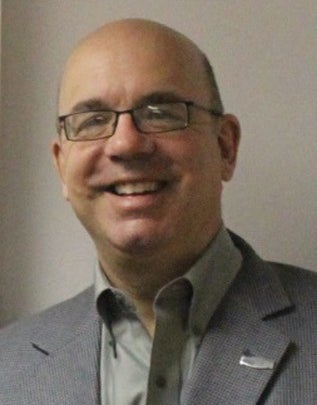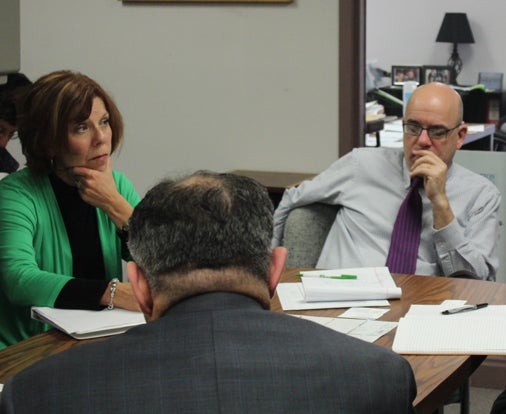By managing philanthropic efforts, English alumnus weaves a story
 There is a notion in philanthropy that has to do with storytelling, and it goes something like this: In order to convince donors to make a gift, foundations must find a way to explain their projects in a way that resonates with the giver.
There is a notion in philanthropy that has to do with storytelling, and it goes something like this: In order to convince donors to make a gift, foundations must find a way to explain their projects in a way that resonates with the giver.
Conversely, Mike Kane believes that in order for a gift to be truly meaningful to the donor, foundations should listen to people talk about their passions, then try to match those emotions with community needs.
In some ways, this philosophy explains how a man like Kane parlayed the English degree he earned in 1981 from what is now the Dietrich School of Arts and Sciences into his position as president and executive director of the Community Foundation for the Alleghenies, which funds projects ranging from the arts to education, environmental causes, and economic development in Bedford, Cambria, and Somerset counties.
“It’s the kind of place for somebody who really cares a lot about where they live, which I do,” says Kane. But it took him a few years to get there.
Born in Pittsburgh, Kane's family moved to Louisville and Indianapolis before his parents returned to their hometown of Johnstown. Both had attended Pitt’s Johnstown campus, and Kane followed in their footsteps, inspired in part by older kids from his high school who opted to attend college locally.
If in-laws and extended family members are factored into the equation, a member of the Kane clan has been enrolled at the University of Pittsburgh since the Korean War every year but four. Mike started in Johnstown, then transferred to Oakland, which he considered “a great, great experience for me personally.”
“I felt myself challenged in a way that I hadn’t really been before,” he explains. “I had to work harder. And I had to learn to work harder. I also made some lifelong friendships I value very much.”
 Majoring in English was also a family tradition; Kane’s father had started his career as a journalist, then owned a family advertising business.
Majoring in English was also a family tradition; Kane’s father had started his career as a journalist, then owned a family advertising business.
“My father always said, ‘If you can write a sentence, you can get a job anywhere,’” Kane says.
After graduation, Kane and two college roommates “did our Jack Kerouac thing,” traveling briefly before he went to work for his father’s ad agency. He later taught at Emerson College before returning to Western Pennsylvania to teach English at the Kiski School. Kane also served as the assistant director of college counseling (“we made sure some kids went to Pitt, I’ll tell you that,” he says) and coached junior varsity soccer and freshman basketball.
He bought a printing business in Johnstown and worked as a small businessman before entering the nonprofit world of philanthropy; he started at the Conemaugh Health Foundation before transitioning into his current role. Twelve years later, he says, “this is absolutely the right place for me to be.”
Kane considers himself a generalist, knowing a little about a variety of things; that is part of what makes his job so rewarding. He credits the communication skills he acquired at Pitt with preparing him strike the right balance in his work, which is essentially helping older communities reinvent themselves.
“You want to be realistic, but you want to be aspirational at the same time,” he says. “You want to strike a balance when you’re talking to people, so they say, ‘I see; you’re trying to move this from A to B.’ You have to communicate the context in which you’re trying to move things forward.”
The foundation has focused on the development of trails, community gardens, and community engagement, among other projects. Sometimes groups visit the foundation with nothing more than an idea, but they need help to flesh it out; others are established charities that hope to build capacity. A winter meeting serves as a matchmaking event between volunteers and nonprofits that need their assistance.
“We found stuff happening because of the connections being made,” Kane says. “The philanthropy isn’t an end; it’s just a tool to make that happen.”
Despite his obvious enthusiasm for his work, Kane says even he is surprised by how much the foundation has grown; today, it houses more than 500 separate donor funds.
“In a way, I think these towns are in a position where, with some thoughtfulness and energy, they can reinvent themselves. I realize that’s ambitious, but if you think about it, why can’t you do that?” he asks.
Towns need to ask themselves: Who do you want to be? “We want people to step up and answer that question,” he says. And at the end of the day, he sees his mission as simple: Making the community better.
“That’s good enough for me,” he says.
